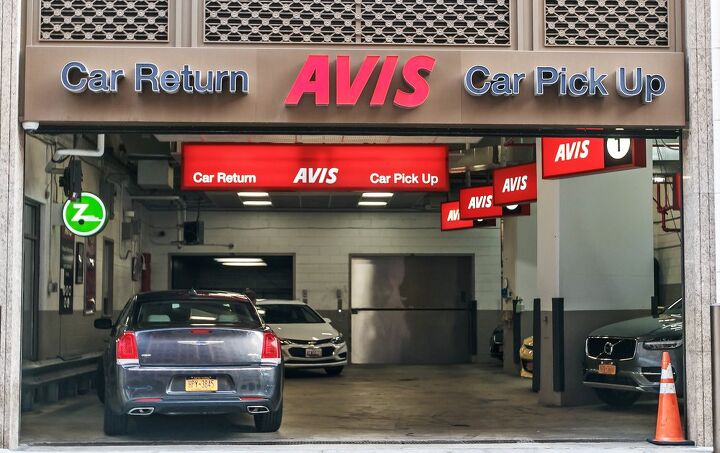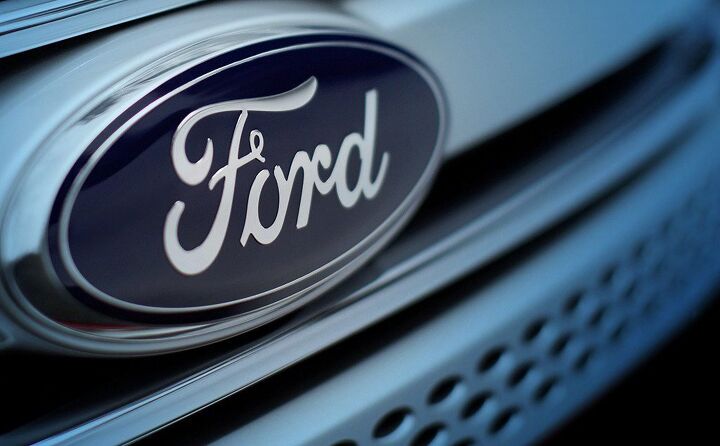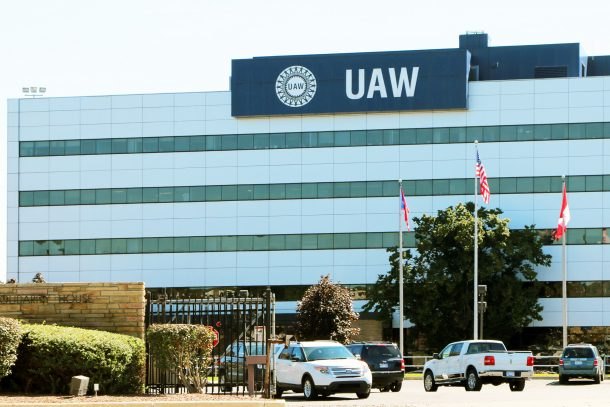#COVID-19
Zipcar Expands Options Amid Pandemic, Auto Rental Agencies Cut Prices
With auto manufacturers, dealerships, and insurance agencies scrambling to find a way to retain customers during a global pandemic, now is the season of trying new things. Insurance companies have begun offering refunds on premiums for certain people who can’t afford to pay (and aren’t driving) during the health crisis. Automakers are offering heavy incentives on just about everything, cutting additional breaks for those left unemployed. Dealers are swapping to digital sales models to avoid as much direct contact with buyers as humanly possible while still making a sale.
But what are ride-sharing companies supposed to do?
Zipcar has a few ideas. With ride-hailing services and taxi cabs being viewed by many as mobile germ carriages, you wouldn’t expect shared vehicles to be in demand. Zipcar is making a few changes in a bid to make it all the more appetizing. Rather than relying on its typical hourly (or daily) price rates, it has expanded its Dedicated Zipcar vehicle program for weekly rentals. But that puts the business up against traditional rental firms, which have slashed their prices to an almost comical degree.
Global Pandemic May Hit Luxury Brands the Hardest
Mercedes-Benz got out in front of BMW while automotive sales languish in the gutter, though neither company finds itself resting comfortably upon a bed of roses. The global pandemic has made sure of that; no segment has gone unaffected by social distancing measures, but it may be the luxury divisions that have it the hardest moving forward.
Up until recently, premium nameplates had done rather well — scooping up an increasing share of the total auto market for years. While the Great Recession momentarily suppressed their ascension in 2008 and 2009, it was a temporary setback.
Luxury brands have had a good decade overall, with any rough years being offset by expansions in their lineup (chiefly crossover vehicles). Now they’re trying to move downmarket to capitalize on younger customers with a bit more pocket money. It might have been a good strategy, were it not for the coronavirus outbreak and subsequent economic downturn.
Chinese Auto Market: Inbound Rebound?
With China serving as the flashpoint of the coronavirus outbreak that brought the world down a peg or two, industry and financial analysts have been watching that market like a hawk. The country went into this crisis before any other, which may prove useful for predicting the general path of global recovery efforts.
Unfortunately, specious reports about the number of infected citizens inside that nation have cast a double-quilted blanket of doubt over its official statistics. We don’t actually know if the Chinese government has effectively wrangled the illness or is just hoping to win an international public relations battle. Fortunately, infection rates and death tolls aren’t the only metrics we have to rely on.
According to the China Passenger Car Association, auto sales plummeted by as much as 96 percent since COVID-19 began its relentless spread. This came after months of negative sales growth, leaving the Chinese market in a truly unenviable situation once mandatory quarantines were enacted. Now, circumstances have changed. Showrooms are reopening and many factories have resumed operations, only this time they’re the ones that have to worry about supply chain issues.
See You in September? Beijing Motor Show Delayed
The organizers of the Beijing International Automotive Exhibition have rescheduled the event on account of the novel coronavirus. Originally slated to cap off April, the trade show will now be held between September 26th and October 5th.
While China is supposedly coming out of health crisis in better shape than a lot of other countries, there are reasons to doubt the COVID-19 figures published by the Communist Party of China. The situation on the ground could be much worse than state-backed media and the World Health Organization indicate. However, even if the nation’s ludicrously low infection statistics are accurate, it is not surprising to see event organizers exercising caution.
Ford Fondly Remembers Cash for Clunkers
With social distancing measures throwing automotive sales straight into the dumpster, Ford is reportedly getting ready to float some interesting ideas by the U.S. government. It’s vying for a stimulus deal aimed at giving the industry a jump start after the health crisis posed by the novel coronavirus subsides.
One of the models Ford’s pushing is unsettlingly familiar.
Subaru Extends Shutdown, Cites Unpredictable Chinese Supply Chains
Subaru is joining the long list of automakers closing shop on account of the coronavirus. Japanese production is being suspended at the automaker’s main plaint in the country’s Gunma prefecture from April 11th through the first of May. It’s also idling the Oizumi engine facility as it announces plans to extend the suspension of its U.S. facility in Indiana. The plant will now be idled through April 20th.
While some of the closures are due to social distancing obligations, the rest is down to parts allocation. Subaru is heavily reliant on components manufactured in China, and it’s still not clear how things are actually going there. What is clear is that Subaru (and plenty of other manufacturers) can’t do without its robust industrial sector operating at full strength. Subaru CFO Toshiaki Okada said in February that “it’s impossible to manufacture cars without China.”
Minor Victory: Scooter Companies Abandon Cities Due to Viral Outbreak
Over the last two years, urban landscapes have been marred by a growing number of companies offering street-side scooters for rent. The business model always seemed a little curious, especially as additional players moved into the market. It wasn’t long before plenty of cities had their sidewalks littered with scooters in various states of disrepair and thrill-seekers were using them to dive through traffic, thus frustrating motorists.
They also have to be shared with your neighbors, making them none-too-appeasing in an era where everyone is obsessively washing their hands to avoid the coronavirus. Combine that with cities asking (sometimes demanding) that citizens remain indoors and you can probably guess where this is all going. Scooter providers, already in the delicate position of being “mobility” companies, are reeling things back in.
FCA Deferring Payment for Salaried Employees
Fiat Chrysler Automobiles is deferring 20 percent of salaried workers’ pay until June while CEO Mike Manley endures a 50-percent cut to his annual earnings. With the pandemic still attempting to grip more of North America, this was to be expected. Other domestic nameplates have already issued notices of deferred payments to executives staffers, noting that additional measures would likely need to be taken if COVID-19 fails to recede in the coming months. Seeing the writing on the wall, FCA seems to have jumped straight into phase two.
In-house Development: Ford Engineers Applying Finishing Touches to Mach-E From Home
With the United States on pause for the coronavirus outbreak, we’ve been left scratching our heads as to how it might impact the timetable of numerous vehicles slated to debut later this year. Apparently, working remotely isn’t as big a hassle for engineers as one might assume — provided the car is nearing completion. Ford is reportedly continuing development of the all-electric Mustang Mach-E by allowing staff to tweak and test prototypes from their homes.
Ideally, the crossover would be spending more time on factory proving grounds while being fussed over by a full complement of engineers. Yet Ford faces a situation where that’s not possible and doesn’t want it stalling the model’s launch. This is the automaker’s first real attempt at a purpose-built EV and the timing is important. A bad impression could send investors running for the hills; meanwhile, any delay would bring the Mach-E that much closer to obsolescence in the minds of customers.
Reeling From Global Health Crisis, Dealers Embrace Online Sales
Auto dealers and manufacturers around the globe have spent the past several years examining the usefulness of digital car sales, but the practice hasn’t been embraced as warmly in the United States, where state franchise laws often prohibit direct sales from automakers to anybody but a licensed auto dealer. Critics say this allowed retailers to become middlemen that customers are forced to haggle, while advocates explain that the system promotes U.S. jobs and provides a local resource for those needing repairs.
Neither are incorrect, yet dealerships have continued to buck online sales, even after manufacturers attempted to work with them on various pilot programs.
With COVID-19 keeping a large portion of the American population at home, dealers are revisiting online sales as a way to cut their losses. Digital transactions now look to be a necessity if shops hope to survive a prolonged pandemic. While many see this as a temporary measure, once the genie is out of the bottle, he’s difficult to put back inside… and may be far less benevolent than we’d like — even if we’re desperately in need of one of those wishes.
Tesla to Reduce Gigafactory Staff by 75 Percent
With Panasonic having already made plans to ramp down production at the Nevada battery facility it shares with Tesla, followed by a 14-day closure to curtail the spread of the new coronavirus, its business partner has decided to follow suit. Tesla now plans on reducing on-site staff at Gigafactory 1 by 75 percent, according to the local county manager Austin Osborne.
“Tesla has informed us that the Gigafactory in Storey County is reducing on-site staff by roughly 75 [percent] in the coming days,” he explained via the county’s website on Thursday. “Our companies at [Tahoe Reno Industrial Center] TRIC are taking the COVID-19 matter seriously, and regularly report to us the measures they are taking to adhere to the established guidelines while maintaining essential operations. Checking employee temperatures, creating central access, allowing remote work, maintaining workstation distance, and others are occurring.”
Ford Defers Payment for Top Executives to Cope With Coronavirus
While Ford Motor Co. plans to reopen several factories by early April, it’s not doing much of anything at present. That’s a standard problem among domestic brands with the coronavirus afoot, and two of them — Ford and General Motors — are coming off sizable restructuring efforts that included staffing reductions in the thousands. Additional cutbacks aren’t desirable; not with everyone watching how these companies handle the outbreak.
As it secures extra spending power from credit lines, Ford knows the steep financial cost of having the majority of its workforce stuck at home (to say nothing of its customers) will be steep. A plan is now afoot to keep jobs secure.
Japanese Driving Schools Benefit From Coronavirus Fears; Public Transit Now Terrifying
Driving schools in Japan are reporting an increase in attendance from individuals who already possess a driver’s license. According to The Japan Times, the new trend is epitomized by Paper Driver School Kitakanto in Maebashi. The school has seen influx of already licensed drivers this month in response to the coronavirus pandemic.
Roughly 10 percent of new students are said to have signed up as a direct result of COVID-19. As Japan’s population has a lower percentage of drivers than in North America, many are dependent upon public transportation to move about — a mobility type that’s become problematic overnight, what with fears of contagion spreading as quickly as the virus itself. To avoid sharing space, some Japanese drivers are attempting to brush up on their skills in order to feel more comfortable behind the wheel.
UAW Reports Death of Two FCA Factory Employees With Coronavirus
The UAW has announced the death of two Fiat Chrysler factory workers who contracted the novel coronavirus, extending sympathies while urging members to exercise safe practices during the ongoing health crisis. With COVID-19 infections ramping up across Europe and the United States, this was to be expected. The deaths are simply the first known to impact autoworker union members directly.
FCA declined to offer the names of the men, citing a respect for privacy. For our purposes, we’re only interested in their places of business, noticing the facilities where the two individuals worked — FCA’s truck plant in Sterling Heights, MI and transmission facility in Kokomo, IN — previously reported cases of employees contracting the virus.
Silver Linings: COVID-19 Thinning Traffic Across the Country
Road traffic across the United States is dropping drastically, thanks to social-distancing efforts taking place to combat the spread of the novel coronavirus. For yours truly, traffic in New York City has gone from frequently hectic to downright pleasurable and relaxed. While there’s a statewide initiative in place to keep residents in their homes, the days leading up to the shelter-in-place order saw a decline in roadway activity I’d only previously witnessed during Hurricane Sandy.
According to INRIX, a Washington-based firm providing traffic analytics, road use in the United States dropped by about 30 percent last week — with regions affected by state-mandated shutdowns seeing even larger declines. The study compares the national traffic volume from the 14th to the 20th of March to volumes recorded between the 22nd and the 28th of February — noting that March 13th was the first day traffic started trending downward in most regions. Moving forward, INRIX says it wants to continue offering up a weekly synopsis of national traffic volume until the health crisis ends.





























Recent Comments